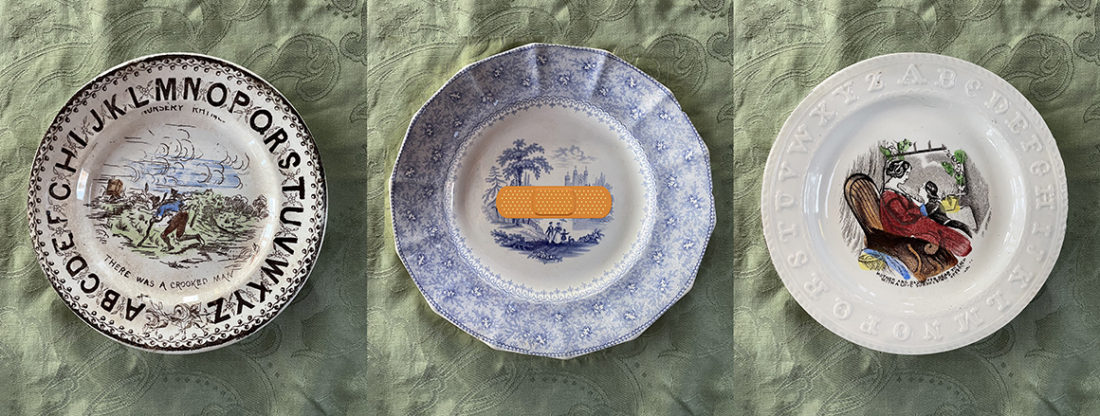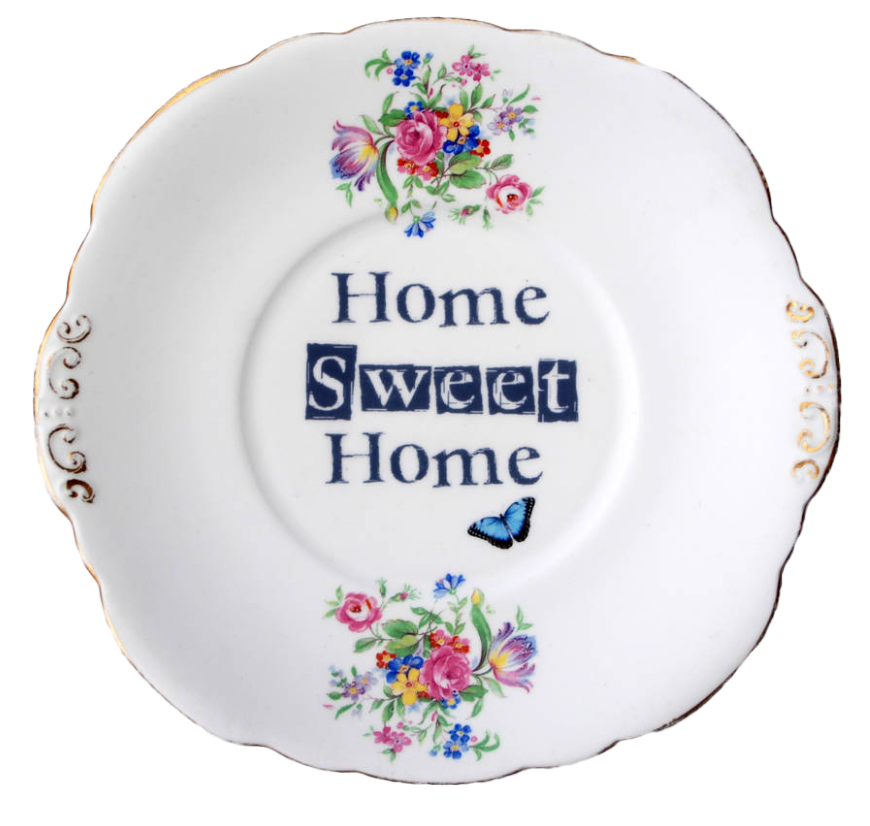Not a cross word when there’s a crossword. The New York Times Crossword was key to my boyfriend’s happiness, I came to understand, among other things, when we migrated upstate in mid-March of 2020. I didn’t focus on what was making him unhappy. I assumed he was feeling what I was feeling—scared, displaced, confused, and worried. But I did notice that the clouds seem to clear, if only for a brief time, when he was crosswording.
Neil and I had come upstate for what we thought would be a long weekend. But each day away from New York City signaled it might be best for two people, one in his seventies and the other almost there, to stay put outside of what was happening in our hometown. The small house was his, not a joint venture, and even though we had been together for almost three years, I had never stayed there for longer than a weekend. Surprisingly, by the seventh day there, I found myself almost asking if I could use the bathroom and retreating there to cry. I was settling in, but I wasn’t comfortable; I was homesick. Can I put my blue jeans in a drawer? Is there a place for my shampoo in the shower? I was in someone else’s home. Everything looked the same—the way it did when we came up for weekends—but everything felt different now.
Neil and I had separate lives in Brooklyn. Separate legal addresses did not keep us from sleeping together every night, but our days were spent apart, each of us pursuing our passions. Writing a humorous blog, doing the crossword almost every day, and playing tennis with his friends were the ways he spent his time since he retired from real estate work while I devoted myself to writing children’s books about architecture and cities and making documentary films about urban issues. We were happy when we were together, but we were also happy to have time apart.
He was my first date in ten years and my first online date ever. I had been through two marriages; he, on the other hand, was a seasoned online dater, having had a series of long-term relationships post his divorce, twenty-five years before. But we had found each other, and we had a rhythm to our togetherness in the city we both loved that worked really well.
The situation in New York was frightening, and coupled with our fear, there was a deep feeling of guilt for having left, even though it wasn’t our intention to flee. People were putting themselves in dangerous situations daily to save lives while we were sitting back, just watching this alarming story unfold. Had we abandoned the city that we loved so much?
With our coughs and sore throats, we could be infected with the coronavirus. As Neil coughed and sneezed, our differences showed up starkly. “It’s nothing. It’s just allergies. I’ve had this before,” he said when I asked about taking his temperature. For me, every day included a medical checklist. I secretly took my temperature, obsessively gargled with apple cider vinegar, which—I had read and wanted to believe—could fight off the virus, and monitored my cough. “Do you think I’m coughing more?” I would ask, even though I knew that that was an irritation far greater for Neil than the irritation of my hacking. We were learning more about each other in the worst of circumstances as our romantic relationship evolved against a backdrop of anxiety and isolation. Things that could have gone unnoticed for years were coming up daily.
Neil is a very practical, cross-that-bridge-when-I-get-to-it kind of person, who doesn’t worry about anything medical or otherwise until he is one-on-one with the situation. He could be on a respirator before even asking for a COVID test. Meanwhile, I had already located the closest hospitals to our coordinates, and worry had set in because the closest one was at least an hour away. “What happens if something happens?” I asked. “What’s going to happen?” He bounced back the question as if we were playing paddleball. “You’re such an alarmist. Nothing’s going to happen.” “How the hell did he know? Was he psychic? We had to be prepared for anything,” I said to myself and thought “We are in the midst of a pandemic; we both have symptoms; we are miles away from our regular doctors; the hospitals at home in Brooklyn are filling up; the nearest hospital for us is an hour away; and he’s not worried. I want to be him.”
I tried to adopt his frame of mind as I put the address of the nearest hospital in my cell phone. I prepared enough dog food for three weeks in case we were both sick and couldn’t feed my dog, Dot; I made a make-shift dog yard in case we were both too sick to walk her; I made soup for us and froze it and added the numbers of Neil’s friends, who were 20 minutes away, and his daughter, who was 30 minutes away, to my contacts. They could always drop food off at the door, right?
As we continued to figure out how to navigate the pandemic, our differences seemed more pronounced. Neil retreated to the news; I ran from the TV. With the constant hum of MSNBC in the living room, which now felt like the war room, I withdrew to the quiet of the bedroom, the meditation room as I started calling it, where I telephoned friends or sunk into a memoir I had started months before. We had found our posts, but each night, we also found each other at the dinner table for a recap of the day and in the bed to tackle sleep, and there was comfort in both of those places.
The New York Times crossword was Neil’s sanctuary, and as he dug deeper into the word at hand, in those precious moments, he was not thinking about the pandemic or any of our national, global, or personal worries. Five letters, starts with “X”—–the crossword was Neil’s Xanax, and he had to have his daily dose. His rules were strict: you could never ask for help in any way and never, ever consult a dictionary. His countenance relaxed, and his focus intensified. It was a solo experience, and if you disturbed him with a question, you probably would not get an answer. I witnessed how well the crossword puzzle worked on his psyche and was an amazing antidote for the overdose of news he was taking in.
We never talked about going back to Brooklyn; we just kept staying. While the world was turning on its side, and Brooklyn was in medical mayhem, we were numb and afraid but had things to figure out that kept us occupied: how to get groceries in this remote place without going into a grocery store, how to get a refill on our drugs at the nearest drug store miles away, and how to fight off ticks that Dot may have brought in became the points of focus for our togetherness. We were in a faraway place, removed from our city lives and our friends.
“Solving crosswords eliminates worry. They make you a calmer and more focused person,” writes Will Shortz, the New York Times crossword editor. I could see the challenge of the crossword working on Neil, and a radical thought crept into my mind—should we now, in this pandemic, become a Crossword Nation? Should I try this mental yoga or the traditional type or something else to eliminate worry?
As Neil and I socked in more days together, I could feel his calm edge into me and that, coupled with the trust that surrounded us, made my position in high alert shift. I didn’t need the crossword or yoga or something outside myself. I stopped thinking about Brooklyn where all the things that defined me were. My work, my life, my home were in the city—New York, where I landed over 30 years ago. Growing up in rural Alabama, I vowed to never go rural again. But here I was, stationed in an environment much like the one I ran away from, and yet I was happy and, yes, calm in ways I had not felt for a very long time.
In lockdown in the country, we were together all the time, doing mundane things like getting groceries, cleaning the food, going to the garbage dump, or taking walks. We were solitary together. The world was whirling in turmoil, and we were in a cocoon, finding out about each other in ways we may never had. We were different, and we marveled on how those differences worked.
As each day moved into the next, we realized we were doing something we had talked about but never seemed to be able to move on to in Brooklyn. Sitting on the porch for our new, everyday evening Neil leaned in for a kiss, saying “Darling, did you realize we are actually living together?” Without any big decision or ceremony, we had eased into domesticity, making what felt like a home together. The back and forth on how to make cohabitation work had dissipated with the pandemic. It was hard to even look back at why we had delayed. I vaguely remembered discussions we had had about apartment size and location. First world conversations that seemed meaningless now. Instead, we were just together in this small, cozy place, and living together was easy. Later that same night, I awoke suddenly around 3 a.m. Neil was awake too, and I felt him inch closer under the sheets. I snuggled in and whispered my thought in that moment. “Neil, you are my home.” Four letters, starts with “H,” and in the daylight, the letters filled the spaces perfectly.
Isabel's website is www.isabelhill.com
- Four Letters, Starts With “H” - December 7, 2022

